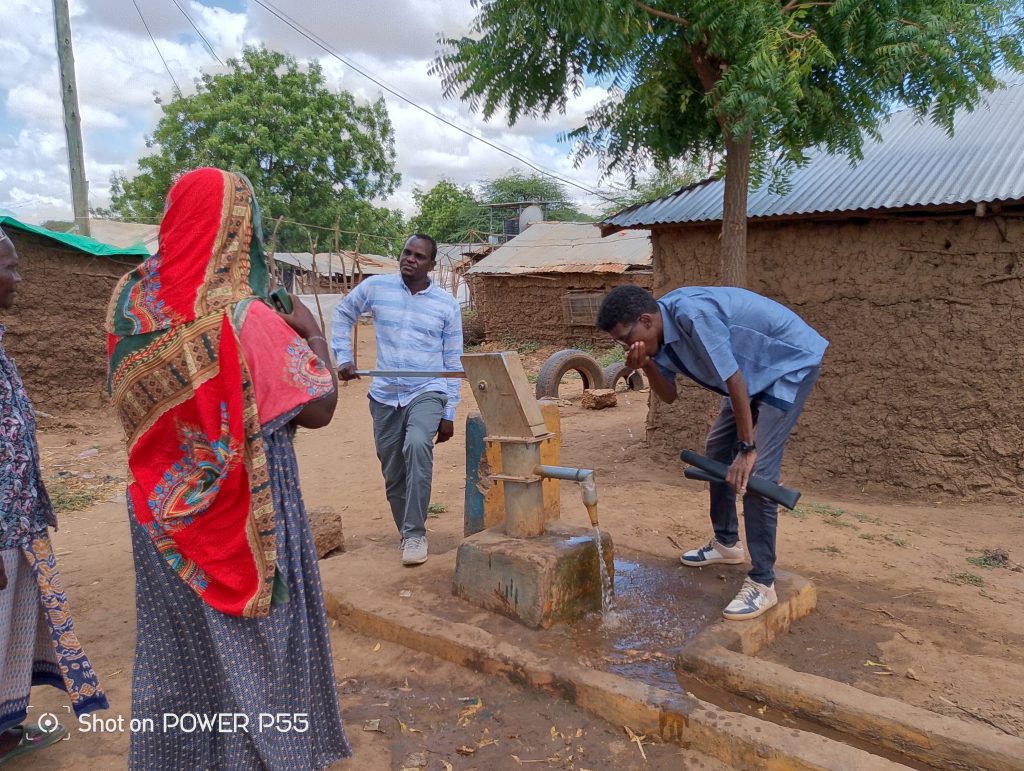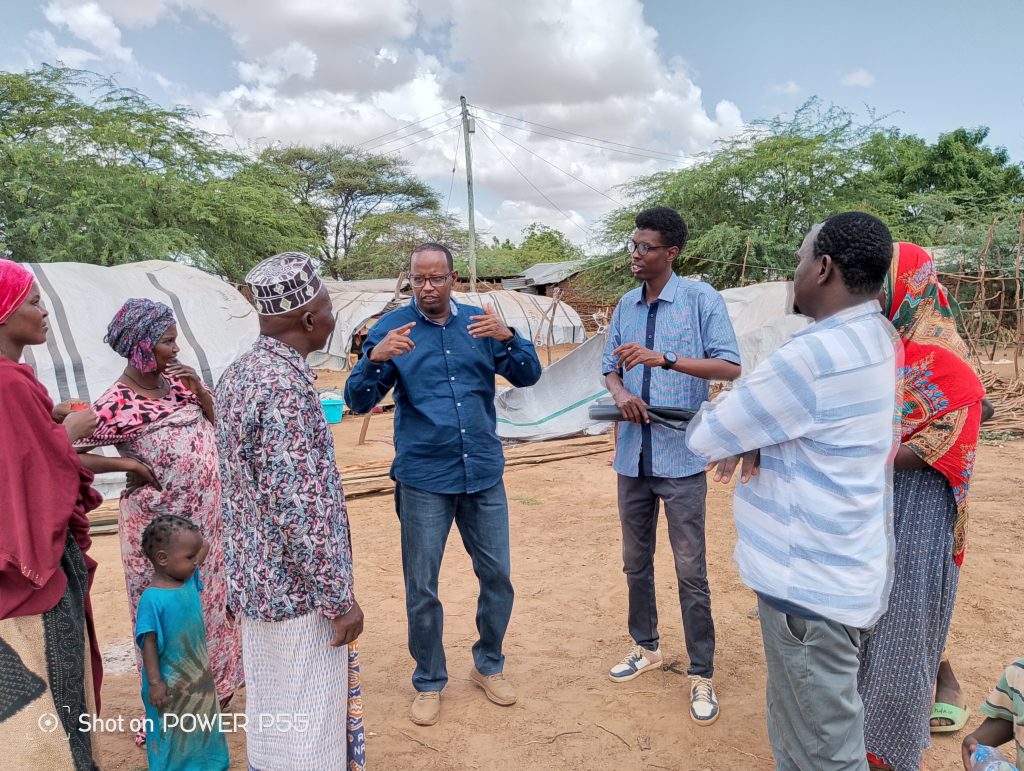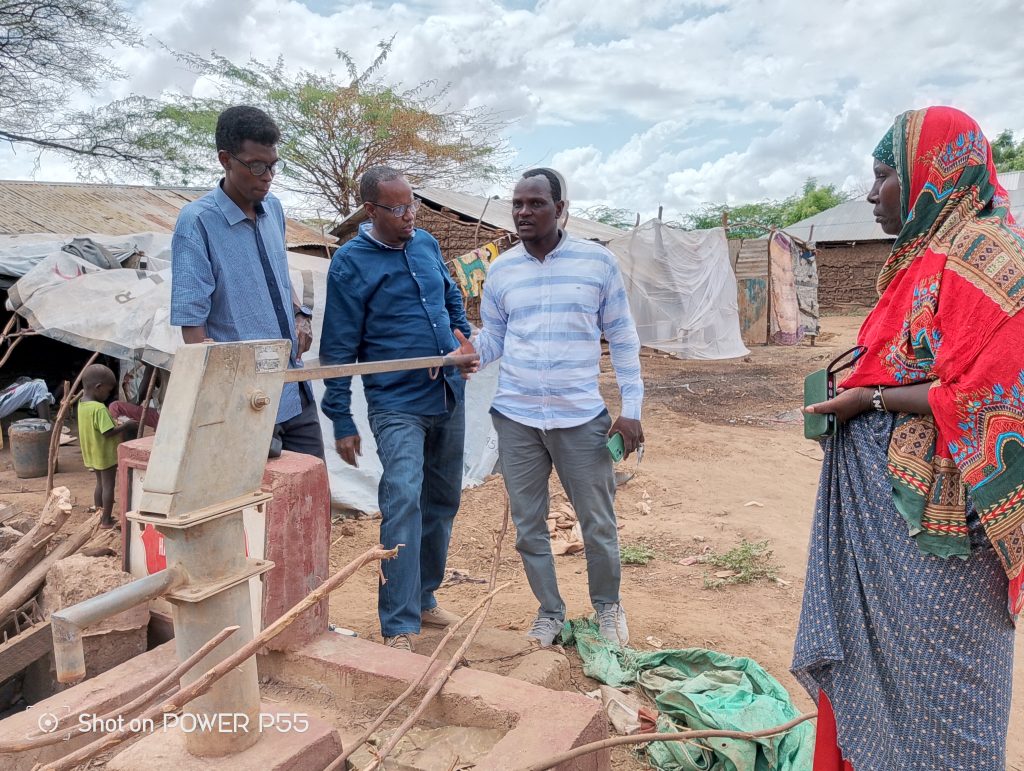It has become a conventional wisdom in policy circles that it is inappropriate to simply respond to people’s need for easy access to safe water without considering the consequences to sustainability and improved health. A simple “supply-driven approach” can meet the needs of the rural masses speedily, but the users lack a sense of responsibility for the management of the water points. The challenge, therefore Africa Charity Aid for the Needy AFCHAID is developing ways to provide sustainable access to water.

The CEO of Africa Charity Aid for the Needy Mohamed Shire and a team from the local communities mainly villages that have no water are on-site for community participation targeting 10 villages to be drilled water wells.
“In Africa today, over half of the population is without safe drinking water and two-thirds lack a sanitary means of excreta disposal. With a population of 54 million, 15 million Kenyans lack access to safe water, and 37 million lack access to a safe toilet.

Growing water demand and water scarcity have turned into a notable challenge in Kenya. Climate change, population growth, urbanization, water pollution, and poor management of water resources have aggravated the issue of the water crisis, which affects economic activities, food security, education, and health. These challenges are especially evident in rural areas and urban slums where people are often unable to connect to piped water infrastructure.


The best ngo that knows d concern and priorities of the need of the people and all d time with the community like to help specifically the remote villges
thanks dear brother for the concern